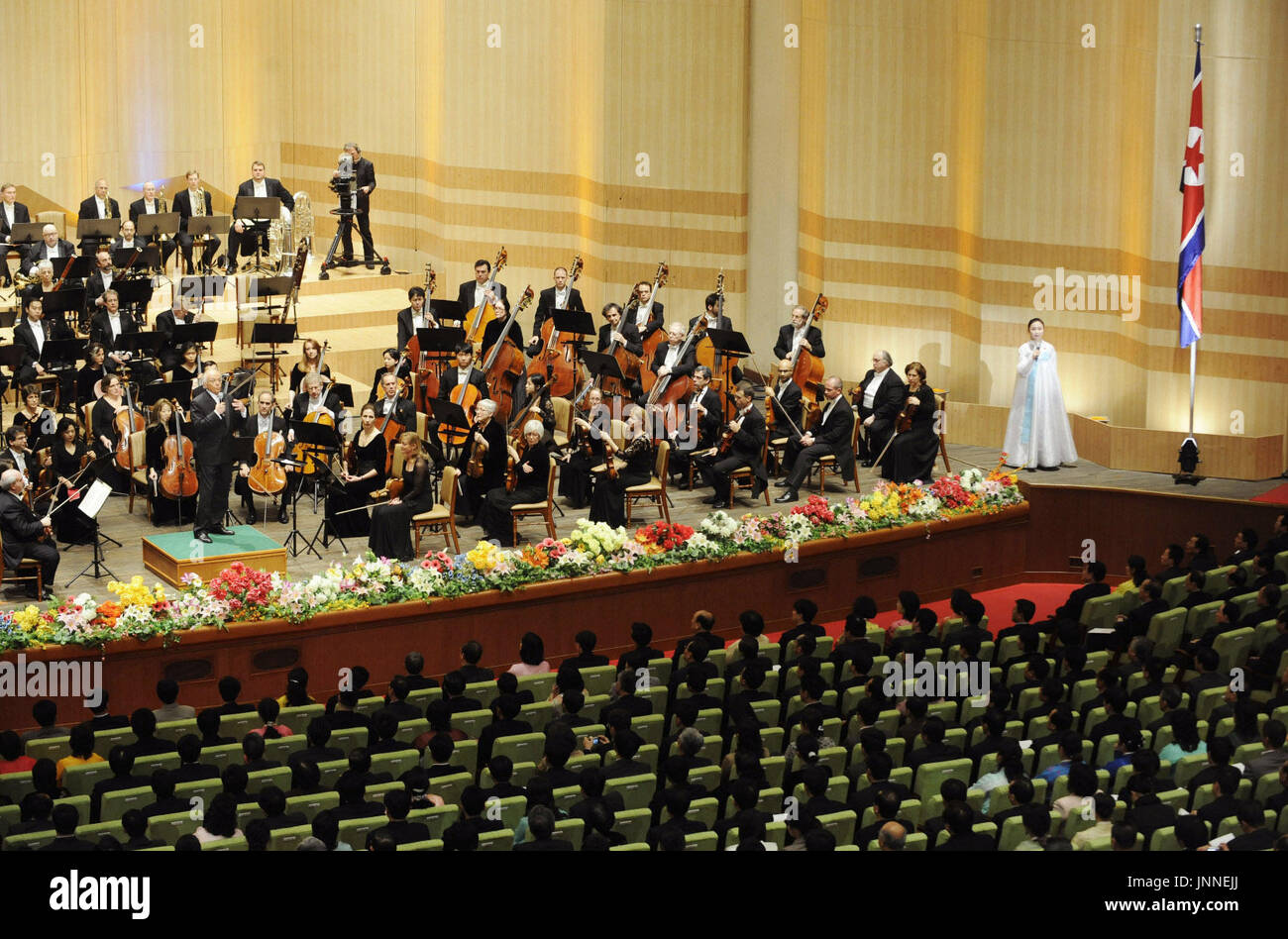The New York Philharmonic, one of the most venerated orchestras in the world, ventured into the enigmatic realm of North Korea, a country often synonymous with geopolitical tension and secrecy. The question arises: Can music truly transcend borders and promote harmony in a divided world? As the Philharmonic took to the stage in Pyongyang, they not only performed a concert but also posed a symbolic challenge—how can cultural diplomacy facilitate peace in an era fraught with animosity?
The backdrop of this momentous event was a clandestine country with a complex cultural tapestry woven through decades of isolation. Music, an innate form of expression, holds the power to reveal the human condition in its most vulnerable state, bridging chasms created by language and politics. The orchestra’s goal was not merely to entertain, but to foster a dialogue through melody, inviting both the elite and the ordinary citizens of North Korea to experience the universality of artistic expression.
With Lorin Maazel at the helm, the Philharmonic’s repertoire included classics that resonate with emotional depth. Works by composers like Tchaikovsky and Dvořák transcended time and geography, resonating with narratives of love, struggle, and triumph. It is within these complexities that the orchestra aimed to plant seeds of empathy among the audience—could a shared experience of beauty foster a sense of kinship among people from disparate backgrounds?
However, this concert showcased more than just an opportunity for cultural exchange; it underscored the potential risks associated with such endeavors. The challenge remains: can one concert alter deep-seated perceptions and foster a transformative dialogue? While the event received international acclaim, the nuances of reception within North Korea could diverge significantly from external perceptions. The regime’s strict control over media and ideas frequently clouds citizens’ understanding of the outside world.
Moreover, the international community pondered whether such outreach could inadvertently legitimize a regime known for its stark human rights violations. While the arts possess the ability to galvanize discussion, they also raise ethical considerations regarding involvement with a government whose actions often starkly contrast with the ideals of freedom and expression.
In conclusion, the New York Philharmonic’s foray into North Korea serves as a compelling case study in the realm of cultural diplomacy. Music possesses the extraordinary ability to connect individuals, even in the most oppressive environments. As the Philharmonic continues its noble mission to inspire and connect through artistry, one must contemplate the broader implications of such efforts. Can we find a common chord amid discord, or will the strain of politics continually overshadow the symphony of peace?
